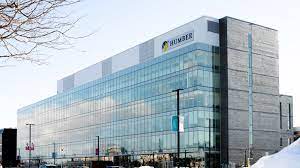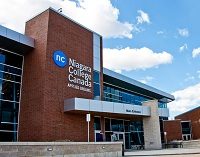Diploma courses fast track your academic journey, enabling you to land jobs faster and with a set skill. So, if money is your prime target, Diploma is definitely the best choice for you.
While many options are available online, it can be daunting to find the right fit. This article focuses on Diploma programs in Canada.
A Canadian diploma is a cost-effective, quick way to fulfil your ambitions. It offers the flexibility of working while studying through initiatives like co-op programs and 1-year diploma programs or PG diploma programs. Before delving deeper, let’s have a look at the different types of diploma courses available for you.
Types of Diploma in Canada
| Diploma | Duration | Eligibility |
| Undergraduate Diploma | 1- 2 years | For students who have completed high school, offering foundational knowledge and practical skills. |
| Postgraduate Diploma | 1- 2 years | For students who have already completed a bachelor’s degree; focusing on advanced specialization in a particular field. |
| Co- op Diploma Programs | Combines academic learning with real-world work experience and students work with Canadian companies as part of the program. |
Get Accepted By Top Universities Abroad
Benefits of choosing studyHQ
- Guaranteed admission to elite global institutions.
- StudyHQ provides complete support to the students.
- Unlimited complimentary counseling sessions with StudyHQ professionals.
- Receive advice from seasoned experts to master the IELTS.
- Complete knowledge base in obtaining scholarships, loans, foreign exchange, travel advice, student housing, and much more.
Top 1-Year Diploma Programs
After completing 12th grade in Canada, a variety of certificate programmes are offered, some of which can lead to promising career prospects. According to demand in the sector, the top diploma programmes vary, however these are some popular choices:
| Programs | Online/On-Campus | Colleges | Tuition Fee | Starting Salaries |
|---|---|---|---|---|
| Diploma in Business Administration Co-op | On-Campus | Toronto School of Management | CAD 12,495 | CAD 30,000 to 50,000 |
| Diploma in Business Management | On-Campus | Toronto School of Management | CAD 20,250 | CAD 40,000 to 60,000 |
| Diploma in Business – Accounting | On-Campus | Niagara College | CAD 34653.40 | CAD 35,000 to 45,000 |
| Diploma in Biotechnology – Advanced | On-Campus | Fleming College | CAD 9893.21 | CAD 40,000 to 60,000 |
| Diploma in Computer Engineering Technology | On-Campus | Fleming College | CAD 9292.57 | CAD 40,000 to 60,000 |
| Diploma in Digital Marketing With Co-op | On-Campus | Canadian College of Technology and Management | CAD 8200 | CAD 40,000 to 60,000 |
| Diploma In Electrical Engineering Technician | Hybrid (Online & On-Campus) | Centennial College | CAD 16531.07 | CAD 45,000 to 60,000 |
| Diploma in Hospitality and Tourism Management With Co-op | On-Campus | Canadian College of Technology and Management | CAD 10200 | CAD 30,000 to 40,000 |
| Diploma in Advertising – Media Management | Hybrid (Online & On-Campus) | Humber College | Domestic: CAD 5,858.88 International: CAD 18,498.00 | CAD 35,000 to 55,000 |
Best Colleges For 1 Year Diploma courses In Canada
-
PictureNameLocationDetails
-
 Humber CollegeToronto, OntarioQS Ranking – 1423
Humber CollegeToronto, OntarioQS Ranking – 1423
Scholarships: Upto CAD 4,000
Placement Rate: 86.5% -
 Centennial CollegeToronto, OntarioQS Rank – 1302
Centennial CollegeToronto, OntarioQS Rank – 1302
Scholarships: Upto CAD 10,000
Placement Rate: 85% -
 Downtown, TorontoBusiness Schools Category (Global) – 2
Downtown, TorontoBusiness Schools Category (Global) – 2
Scholarships: Upto 100%
Placement Rate: 90% -
 Durham CollegeOshawa, OntarioQS Rank – 1371
Durham CollegeOshawa, OntarioQS Rank – 1371
Scholarships: Upto CAD 3,000
Placement Rate: 84% -
 Niagara College TorontoToronto, OntarioTop Research College In Canada Rank – 1, Best Colleges is Regional Universities North – 33
Niagara College TorontoToronto, OntarioTop Research College In Canada Rank – 1, Best Colleges is Regional Universities North – 33
Scholarships: Upto CAD 18,000
Placement Rate: 83% -
 Fleming College TorontoOntarioTop Research Colleges in Ontario Rank – 11, Nationally – 29
Fleming College TorontoOntarioTop Research Colleges in Ontario Rank – 11, Nationally – 29
Scholarships: Upto CAD 2000
Placement Rate: 88.5% -
 Canadian College of Technology and BusinessSurrey, British ColumbiaScholarships: Upto 10%
Canadian College of Technology and BusinessSurrey, British ColumbiaScholarships: Upto 10%
IELTS – 5.5
Benefits of 1 Year Diploma Program
- Help you get a student visa and PR easily.
- Allows you to enter the workforce sooner, gaining practical experience and earning an income
- Quickly apply your skills and knowledge in the professional world, accelerating career growth
- A stepping stone to higher education. Some programs offer credits that can be transferred to degree programs, allowing you to pursue a bachelor’s degree or higher qualification in the future.
- Obtain specialized knowledge and skills quickly
- Reduced tuition fees and living expenses
Top 2-Year Post Graduate Diploma Programs
In Canada, postgraduate (PG) diploma courses are popular among students who have already completed a bachelor’s degree and are looking to specialize in a particular field or enhance their knowledge and skills. Here are some top PG diploma courses in Canada:
| PG Diploma Programs | Online/On-Campus | Colleges | Tuition Fee | Starting Salaries |
|---|---|---|---|---|
| PG Diploma in Data Analytics | On-Campus | Humber College | CAD 21,081.00 | CAD 60,000 to 80,000 |
| PG Diploma in Cyber Security | On-Campus | Canadian College of Technology and Business | CAD 17400 | CAD 60,000 to 90,000 |
| PG Diploma in Digital Marketing | On-Campus | York University | CAD 15,199 | CAD 40,000 to 60,000 |
| PG Diploma in Business Administration | On-Campus | Concordia University | CAD 32,000 | CAD 40,000 – 60,000 |
| PG Diploma in Business Management | Online | University of Toronto | CAD 795 | CAD 40,000 – 60,000 |
| Advanced Diploma In Architectural Technology | On-Campus | Humber College | CAD 20,105.00 | CAD 45,000 to 60,000 |
| PG Diploma in Tourism Management | On-Campus | Humber College | CAD 16,803.00 | CAD 40,000 – 60,000 |
Best Colleges For PoST Graduate Diploma courses In Canada
-
PictureUniversity NameLocationDetails
-
 Canadian College of Technology and BusinessSurrey, British ColumbiaScholarships: Upto CAD 4,000
Canadian College of Technology and BusinessSurrey, British ColumbiaScholarships: Upto CAD 4,000
TOEFL iBT – 35, IELTS – 4.5, Duolingo – 65, CAEL – 30, And many more -
 Humber CollegeToronto, OntarioQS Ranking – 1423
Humber CollegeToronto, OntarioQS Ranking – 1423
Scholarships: Upto 90%
CAEL – 60, Cambridge English Tests – B2 First / C1 Advanced / C2 Proficiency 169, Duolingo – 105, IELTS – 6.0, TOEFL – 550, And many more… -
 Concordia CollegeMontreal, Quebec, CanadaNational Liberal Arts Colleges (tie) – 145, Top Performers on Social Mobility (tie) – 165
Concordia CollegeMontreal, Quebec, CanadaNational Liberal Arts Colleges (tie) – 145, Top Performers on Social Mobility (tie) – 165
Scholarships: Upto CAD 16,000 Annually
TOEFL iBT – 90 , IELTS – 7, DET – 120, And many more…
Benefits of 2 Year Diploma Program
- More extensive internships and work placements for practical experience and increased job prospects
- In-depth knowledge and skills for quicker advancement in chosen field
- Credits transferable to degree programs for future pursuit of higher qualifications
- Allows for comprehensive study within a reasonable timeframe
- Lower tuition fees and living expenses compared to traditional degrees
- Enhanced job prospects with specialized skills
Learn More: MS in Data Science in Canada for International Students
Best Co-Op Programs in canada
In the ever-evolving job market, diploma co-op Canada programs have become a valuable pathway for students to gain practical experience and enhance their employability. Canada offers a wide range of exceptional co-op programs as given below:
| Programs | College | Tuition Fee | Starting Salaries |
|---|---|---|---|
| Business Administration Co-op | CCTB, TSoM, Algonquin | CAD 10,000 – 15,000 | CAD 40,000 – 60,000 |
| Business Management Co-op | CCTB, TSoM | CAD 10,000 – 15,000 | CAD 40,000 – 60,000 |
| Digital Marketing Specialist Co-op | CCTB, TSoM, Algonquin | CAD 10,000 – 15,000 | CAD 40,000 – 60,000 |
| International Hospitality Operations Management Co-op | CCTB | CAD 7700 | CAD 30,000 to 40,000 |
| Hospitality and Tourism Management | CCTB, TSoM | CAD 10,000 – 15,000 | CAD 30,000 to 50,000 |
| Cybersecurity Risk Management With Co-op | TSoM | CAD 14,745 | CAD 60,000 to 80,000 |
| Full-Stack Web Development With Co-op | CCTB | CAD 24800 | CAD 60,000 to 80,000 |
| Security Operations Analyst With Co-op | CCTB | CAD 11300 | CAD 60,000 to 80,000 |
| Data Engineering and Analytics With Co-op | CCTB | CAD 17400 | CAD 50,000 to 70,000 |
| Software Quality Assurance Engineering With Co-op | CCTB | CAD 16400 | CAD 55,000 to 75,000 |
| User Experience and Interactive Design With Co-op | CCTB | CAD 17400 | CAD 60,000 to 80,000 |
| Strategic Human Resources Management | Algonquin | CAD 34,160.86 | CAD 50,000 to 80,000 |
| Supply Chain Management | Algonquin | CAD 7,208.82 | CAD 55,000 to 70,000 |
| Automation and Robotics | Algonquin | CAD 34,889.18 | CAD 60,000 to 100,000 |
Best Co-Op Colleges in canada
Canada’s commitment to co-op Canada education has paved the way for students to gain invaluable industry exposure and develop essential skills while pursuing their academic endeavors. Let’s first check which colleges offer these co-op diploma programs in Canada, chosen based on various rankings and criteria.
-
PictureUniversity NameLocationDetails
-
 Canadian College of Technology and BusinessVancouver, CanadaScholarships: Upto CAD 4,000
Canadian College of Technology and BusinessVancouver, CanadaScholarships: Upto CAD 4,000
TOEFL iBT – 35, IELTS – 4.5, Duolingo – 65, CAEL – 30, And many more -
 Downtown, TorontoBusiness Schools Category (Global) – 2
Downtown, TorontoBusiness Schools Category (Global) – 2
Scholarships: Upto 100%
IELTS – 413, TSoM English Assessment -
 Algonquin CollegeOttawa, OntarioQS Rankings – 1531
Algonquin CollegeOttawa, OntarioQS Rankings – 1531
Scholarships: Upto CAD 40,000
EAP – Level 5 with B-, IELTS – 6.0, PTE – 53, CAEL – 60, Duolingo – 105
Benefits of Co-Op Programs
- Real-world experience
- Enhanced employability
- Networking opportunities
- Skill development
- Industry insights
- Financial support
- Career exploration
- Professional development
- Increased self-confidence
- Smooth transition to employment
Admission Requirements For Diploma Courses In Canada
- Educational:
- High school diploma or its equivalent from a recognized institution
- Some programs may have specific prerequisites or subject requirements
- Language Proficiency:
- Academic Transcripts: High school academic transcripts to show previous achievements
- Statement of Intent (Personal Statement), explaining interest in the program and career goals
- Letters of Recommendation from teachers or employers to assess student’s suitability for the program
- CV/Resume with your educational background and any relevant work experience details
- University application forms to be submited before the deadline
- Portfolio for creative programs like arts or design, showcasing your work and talents
- Financial Proof for international students
FAQs – Diploma Courses In Canada
Canada is known for its high-quality education system, which is recognized worldwide. Pursuing a diploma course in Canada can provide students with valuable skills and knowledge that can help them succeed in their careers. The country also offers a multicultural environment, a safe and welcoming community, and a diverse range of diploma programs that cater to students’ interests and career aspirations.
1-Year diploma courses are perfect for students who want to acquire specific skills and knowledge in a short period. They are also suitable for those who are seeking to enter the job market quickly. 1-year diploma courses are ideal for individuals who want to enhance their career prospects or those who are looking for a career change.
2-Year diploma courses are suitable for students who want to acquire in-depth knowledge and skills in their chosen field. They are ideal for individuals who want to gain hands-on experience through co-op programs, which are a part of many 2-year diploma courses. 2-year diploma courses are also perfect for those who want to pursue further studies and enroll in a degree program later.
The cost of pursuing a diploma course in Canada varies depending on the institution and the program. On average, international students can expect to pay between CAD 15,000 to CAD 35,000 per year for tuition fees, in addition to other expenses such as accommodation, food, and transportation.
The college with the cheapest diploma course can vary depending on the specific program and its associated fees. However, among the options provided, public colleges in Canada generally tend to offer more affordable tuition rates compared to private colleges. Therefore, colleges such as Niagara College Toronto, Fleming College Toronto, Centennial College, Durham College, and Humber College may have relatively lower tuition fees for their diploma courses. It is recommended to research and compare the costs of specific programs at each college to determine the one with the most affordable option for your desired field of study. Additionally, it’s advisable to reach out to the colleges directly or visit their official websites for the most accurate and up-to-date information on tuition fees and program costs. However, TSoM offers the cheapest diploma courses in Canada among these.
Among the colleges listed, CCTB, Centennial College, Durham College, Concordia College, and Humber College offer online diploma courses in Canada. It’s important to note that the availability of online diploma courses may vary by program and college. It is recommended to visit the official websites of these colleges to explore the specific online diploma courses they offer, as well as to gather more information about the admission requirements, course delivery methods, and tuition fees associated with each program.
Yes, there are many scholarships available for international students pursuing diploma courses in Canada. Some of these scholarships are offered by the Canadian government, while others are provided by individual institutions or private organizations. Students are advised to research and apply for scholarships early to increase their chances of receiving funding.
Completing a diploma course in Canada can provide students with valuable skills and knowledge that can help them secure a job in their chosen field. Many diploma programs also include co-op programs that allow students to gain hands-on experience and build their professional network. Graduates of diploma programs can expect to find employment in a variety of industries, such as business, technology, healthcare, hospitality, and more.
